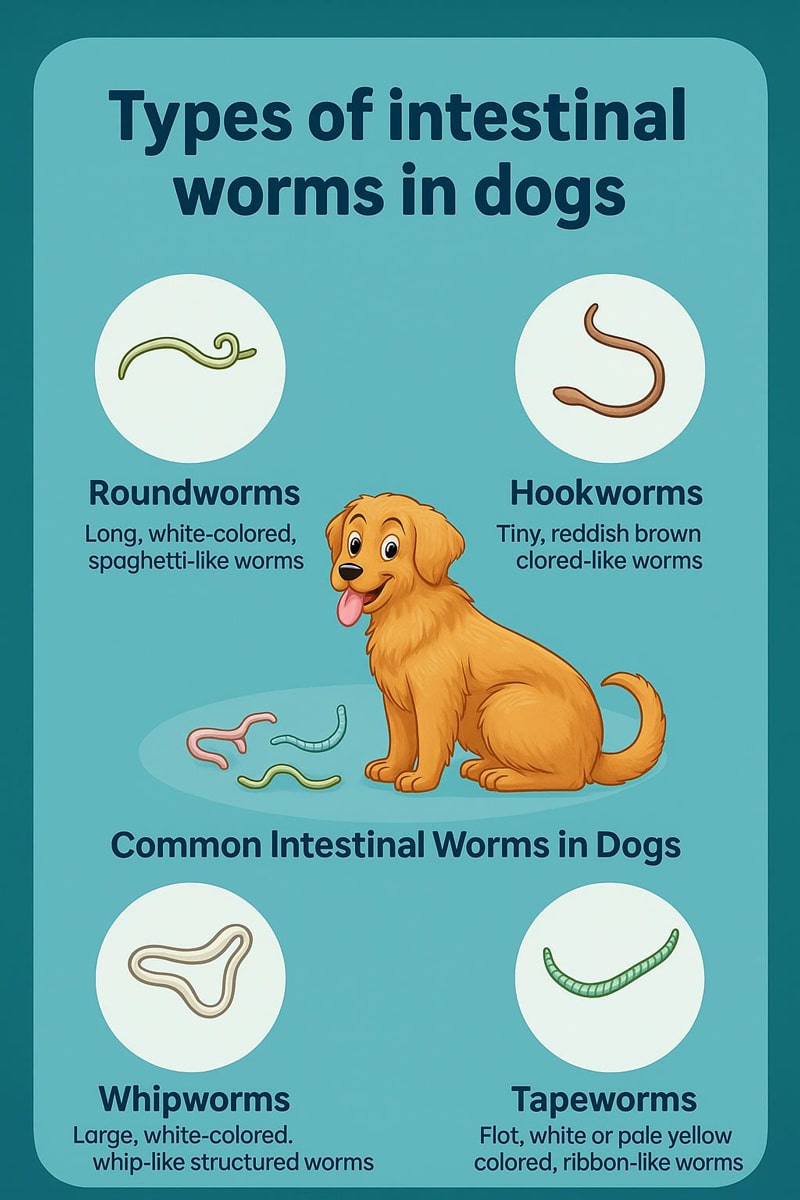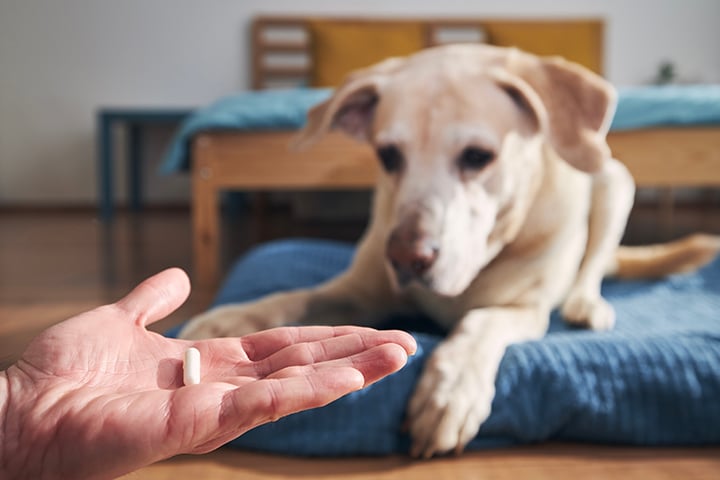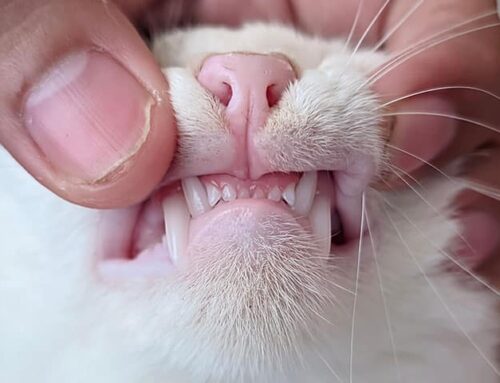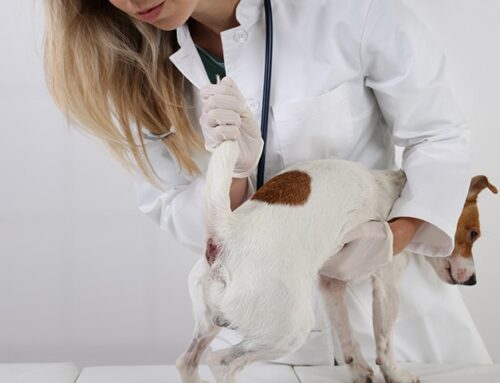How to Deworm a Dog: Vet-Recommended Dog Deworming Tips in Orange County, CA
Top 3 Takeaways
Why Dog Deworming Matters
Parasites are among the most common yet preventable threats to a dog’s health. Even the cleanest, best-cared-for dogs can become infected through contaminated soil, feces, or flea bites. Roundworms, hookworms, whipworms, and tapeworms can live in your dog’s intestines, stealing nutrients, causing weight loss, and damaging internal organs. Some parasites can also pose health risks to humans, especially young children.
In Southern California, dogs spend much of their time outdoors—running in parks, hiking trails, or playing on local beaches. The year-round mild climate creates ideal conditions for parasites to thrive, making regular deworming a critical part of preventive care. For families in Lake Forest, Mission Viejo, Irvine, and Rancho Santa Margarita, consistent parasite control helps ensure pets stay healthy while protecting the household from zoonotic infections.
At Bliss Animal Hospital, we believe parasite prevention is just as important as vaccinations or dental care. Routine deworming is simple, affordable, and highly effective in keeping your dog comfortable and free from intestinal distress.
What Is Dog Deworming?
Dog deworming refers to the process of eliminating intestinal worms and preventing reinfection through the use of safe, scientifically tested medications known as anthelmintics. These medications either paralyze or kill parasites so that your dog’s body can naturally eliminate them through the digestive system.
There are several classes of deworming medications, and each works against specific types of parasites. For instance:
At Bliss Animal Hospital, our veterinarians perform a fecal flotation test before prescribing medication to identify the parasite species and its life stage. This diagnostic step ensures your pet receives the most targeted and effective treatment possible, reducing unnecessary medication use and ensuring full recovery.
Our veterinary team also discusses follow-up testing and preventive care, so that deworming becomes part of your pet’s long-term wellness plan rather than just a one-time fix.

Figure 1: Types of Intestinal Worms in Dogs – An educational guide showing common worms like roundworms, hookworms, whipworms, and tapeworms that can affect your dog’s health.
Signs Your Dog May Have Worms
Intestinal parasites can cause a range of symptoms, from mild digestive issues to severe illness, depending on the dog’s age, immune system, and the type of worm. Some dogs appear perfectly healthy while harboring parasites internally, which is why routine screening is essential.
Common signs of intestinal worms include:
Puppies and senior dogs are especially vulnerable because their immune systems are less capable of fighting infections. If you observe these symptoms, it’s best to schedule an appointment with Bliss Animal Hospital promptly. We can perform an in-house fecal exam and recommend immediate treatment if worms are detected.
Ignoring early symptoms can lead to complications like anemia, intestinal obstruction, and nutrient deficiencies that take longer to reverse.
How to Deworm a Dog: What Vets Recommend
Step 1: Veterinary Diagnosis
Deworming begins with an accurate diagnosis. At Bliss Animal Hospital, we collect a small stool sample and examine it microscopically to detect parasite eggs. Identifying the worm species is key because different parasites require different medications and follow-up schedules.
Step 2: Prescription Deworming Medication
Veterinarian-prescribed medications are the gold standard for dog deworming. Over-the-counter products often use outdated or less effective ingredients and may not cover the full spectrum of parasites found in Southern California.
Common vet-prescribed options include:
Our veterinarians weigh each dog precisely to ensure the correct dosage—underdosing can leave worms behind, while overdosing may cause toxicity.
Step 3: Repeat and Follow-Up
Most deworming treatments require a second dose after 2–3 weeks, as eggs may hatch after the first treatment. In some cases, your veterinarian may schedule another fecal test to confirm that no parasite eggs remain.
Bliss Animal Hospital’s medical team keeps detailed health records and sends email or text reminders for follow-up treatments, helping busy Orange County pet owners stay consistent with their pets’ parasite protection plan.
How Often Should You Deworm Your Dog?
The right deworming schedule depends on your dog’s age, environment, and exposure risk. Dogs who visit dog parks or go hiking frequently are at greater risk of reinfection than strictly indoor pets.
| Dog Type | Recommended Frequency | Notes |
| Puppies (under 6 months) | Every 2 weeks until 12 weeks, then monthly until 6 months | Worms can pass from mother to pup before birth or through milk |
| Adult Dogs (indoor / outdoor) | Every 3 months | Adjust based on lifestyle and risk factors |
| Dogs on Monthly Parasite Preventives | Every 6 months, with fecal testing | Preventives often protect against multiple worms |
| Breeding, Farm, or Outdoor Dogs | Every 1–2 months | High exposure to contaminated environments |
In addition, all dogs should have at least two fecal exams per year. This ensures early detection of parasites and allows your vet to adjust preventive medications as needed.
At Bliss Animal Hospital, we personalize deworming schedules according to your dog’s risk profile. A Lake Forest indoor pet may not need the same frequency as an active Mission Viejo trail companion, for example.
How Long Does Dewormer Take to Work on Dogs?
Most prescription dewormers begin working within 12 to 24 hours, effectively killing adult worms. You may notice dead worms or worm segments in your dog’s stool over the following days—this is normal and indicates that the medication is doing its job.
Complete parasite elimination can take up to two weeks, depending on the severity of the infestation and the type of worm. Some parasites have complex life cycles that require repeat treatments to fully interrupt reproduction.
Your veterinarian may recommend a follow-up fecal test approximately 3–4 weeks after treatment to ensure no new eggs have appeared.
During recovery, encourage your dog to drink plenty of water and feed a bland, easily digestible diet to support their digestive tract. Avoid giving additional over-the-counter dewormers without professional guidance, as mixing products can cause harmful drug interactions.
Deworming at Home: What Pet Owners Should Know
While some pet parents attempt to deworm their dogs at home, veterinary guidance is essential to ensure safety and effectiveness. Many “natural” or home remedies circulating online—such as garlic, pumpkin seeds, or apple cider vinegar—are not medically supported and can even be harmful to dogs.
At Bliss Animal Hospital, we help pet owners manage deworming safely from home by providing vet-dispensed medication and detailed instructions for proper administration. We also advise pet parents on environmental hygiene to reduce reinfection, such as cleaning bedding, disinfecting floors, and properly disposing of feces.
For puppies or dogs that are difficult to medicate, our staff can administer the treatment in-clinic and monitor for any reactions before sending you home with preventive recommendations.
Our Lake Forest facility serves pet families from Rancho Santa Margarita, Irvine, Mission Viejo, and surrounding areas, offering same-day appointments for parasite concerns or follow-up testing.
Preventing Future Worm Infections
Preventing worms is far easier than treating them repeatedly. Every dog’s lifestyle and exposure differ, but these core practices significantly reduce risk:
Preventive medicine not only spares your dog discomfort but also protects your family from zoonotic infections. Roundworm eggs, for example, can cause serious illness in humans if accidentally ingested.
At Bliss Animal Hospital, we help every client establish a customized prevention plan that matches their pet’s daily habits and environment—whether you have an apartment pup in Irvine or a large-breed dog enjoying Lake Forest’s hiking trails.
Deworming and Parasite Prevention Services at Bliss Animal Hospital
Bliss Animal Hospital is committed to keeping Orange County pets parasite-free through comprehensive testing, deworming, and long-term prevention programs. Our veterinary team uses evidence-based medicine and individualized care for every patient.
We proudly serve dogs and cats from Lake Forest, Mission Viejo, Rancho Santa Margarita, Irvine, and neighboring cities, providing:
Our approach combines science and compassion. We explain every step, from diagnosis to prevention, ensuring that pet parents fully understand their dog’s health plan.
Call Bliss Animal Hospital today at 949-354-5201 to schedule your pet’s deworming appointment or wellness exam.
Frequently Asked Questions (FAQs)
How do you know if your dog needs deworming?
If your dog has diarrhea, scoots, or shows weight loss despite normal eating, it’s time for a fecal exam. Puppies should be dewormed preventively even if no symptoms appear.
Can humans get worms from dogs?
Yes, certain worms like roundworms and hookworms are zoonotic, meaning they can infect humans. Practicing hygiene, promptly picking up dog waste, and regular deworming greatly reduce this risk.
Can I use over-the-counter dewormers?
We generally don’t recommend it. Many OTC dewormers don’t cover the full spectrum of parasites seen in California and may cause side effects. Always check with your vet first.
How long does it take for deworming medicine to work?
Most medications act within 12–24 hours, but total recovery can take up to two weeks. Always complete the full treatment and any follow-up visits.
Can I prevent worms naturally?
While cleanliness and proper diet help, natural remedies alone aren’t sufficient. The only proven prevention is veterinary-grade medication combined with hygiene.
What happens if I skip deworming?
Untreated infestations can lead to vomiting, anemia, stunted growth in puppies, and even intestinal blockages. Regular deworming protects your dog’s digestive health and longevity.
How do vets test for worms?
We perform a fecal flotation test that identifies parasite eggs under a microscope. This allows us to choose the most effective medication for your dog’s needs.
Conclusion
Deworming may seem like a routine part of pet care, but it’s one of the most important. Parasites can harm your dog silently, often before symptoms appear. With professional guidance, testing, and consistent preventive care, you can protect your dog from discomfort and safeguard your family’s health.
At Bliss Animal Hospital, we combine medical precision with compassionate care to help every dog in South Orange County live a long, healthy, parasite-free life.
Call 949-354-5201 or request an appointment online to schedule your dog’s deworming today.
About Bliss Animal Hospital
Our team, led by Dr. Nayara Pataro and Dr. Sam Amirshahi, is dedicated to providing compassionate, top-rated care right here in South Orange County. With a strong emphasis on relationships and personalized veterinary care, we’re here to support you and your pet’s health and happiness. If you’re looking for convenient, high-quality care nearby, check out our veterinarian services in Lake Forest, CA and surrounding areas like Veterinarian near Mission Viejo, CA, Irvine, CA Veterinarian (Great Park and Portola Springs) and vet near Rancho Santa Margarita, CA.
Meet Our Team
The blissfull faces behind the care
Driven by compassion and purpose, here is the team who will work to make a difference in your pet’s life. Every single visit.











Leave A Comment